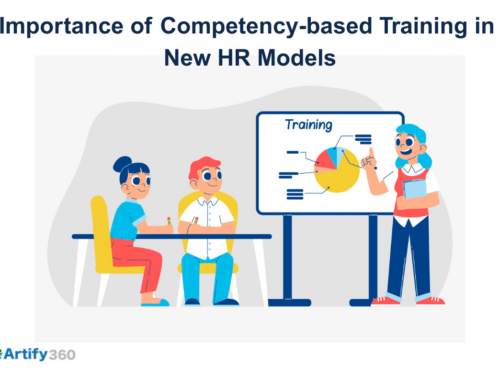Managing your employees’ performance in a remote work setting is more challenging than in a regular office environment. With a regular office, you can meet them face to face, listen to their words, see their facial expressions, and grasp their verbal and non-verbal cues. You can meet them whenever needed, ask for updates, and give suggestions and feedback. Thus you can manage employee performance easily in a regular office environment. But how about the remote work environment?
Managing employee performance in a remote environment is challenging as you can’t meet the person face to face. But even though it’s challenging, managing the performance of your remote workers is necessary for your business growth. It is essential for the career growth of your employees.
So let’s discuss the steps you need to take to manage the performance of your remote workers. As more companies and employees prefer remote work, performance management for remote workers has become necessary.
Set Realistic Expectations
Your employees must know what is expected from their roles when settling into their new roles. It becomes more effortless in the office as they get inputs from their managers and peers. They can grasp and ask for guidance from others on how they perform the tasks.
The problem with remote working is that no one can help and guide your employees to understand what is expected of them. So you should set realistic goals and expectations for your employees. This should help them to understand what is expected of them every day. But make sure the expectations are realistic, and you should not push your employees too hard initially.
You should clarify to your employees their roles and responsibilities in a project and how their deliverables work, whether they work individually or as a part of their team, and whether there is a need to collaborate with others.
Make your work-from-home policy more employee-friendly to derive more productivity from your employees. Give them enough room for self-improvement and time for being with their family. Share your company’s goals and let them know how they can impact the vision and mission of your company. This will make them feel valued and help them realize they are part of something bigger.
When you onboard a new remote worker, schedule virtual meetings with coworkers, managers and higher authorities. It will help them build a good relationship with everyone in the company and will help them settle into the role quickly. Provide enough onboarding materials to make them aware of your work culture.
Schedule Regular Meetings
Scheduling annual or half-yearly performance reviewing meetings is not sufficient today, especially in the remote working environment. You should provide frequent reviews and feedback on your employee performance.
So schedule frequent virtual review meetings with your employees. This will help your employees to improve on things they need and enhance their productivity. You can appreciate them often, which improves employee engagement in your company.
The key to a productive performance review is good communication with your employees. The reviews should be constructive and never be based on bias towards an employee. You should track the performance review meetings and should have a feedback system about the meetings.
Embrace Task Management
Poor task management kills employee productivity. You should implement a system to schedule, track and record your employees’ tasks. A task management system will help your employees and managers track the completed tasks. These will come in handy when you are analyzing the performance of your employees.
Proper task management will enhance the productivity of your employees in many other ways. It will give them a sense of achievement when they scroll through the list of completed tasks. Also, it helps your employees to be accountable regarding their work.
Trust Your Remote Employees
Trust builds everything, as well as your business growth. You need to trust your employees, especially in a remote work setting. Many businesses make the mistake of micromanaging and frequently monitoring their remote employees. This will make your employees uncomfortable and make them feel they are constantly monitored.
Don’t jump to judgment when the remote workers are not meeting their deadlines or as productive as you expected. There may be genuine reasons, including personal reasons for being unproductive. You should help them in these situations and show them empathy.
You should make your employees feel comfortable and let them realize they are valuable to the company. They should understand that their physical and mental health is essential for the company.
When you show commitment in a kind gesture to your employees, they will work hard to repay the faith you showed in them. Trust can build a good relationship with your employees, which helps them to be productive.
Use a Performance Management Software
Managing remote employees’ performance becomes easier when you have a proper performance management system. Artify 360 is the best HR software for HR managers to manage employee performance in Saudi Arabia. The performance management system in Artify 360 will help you set goals and track them effectively.
Request a free trial of Artify 360 HRMS software in Saudi Arabia to implement the best performance management system for your remote employees.






